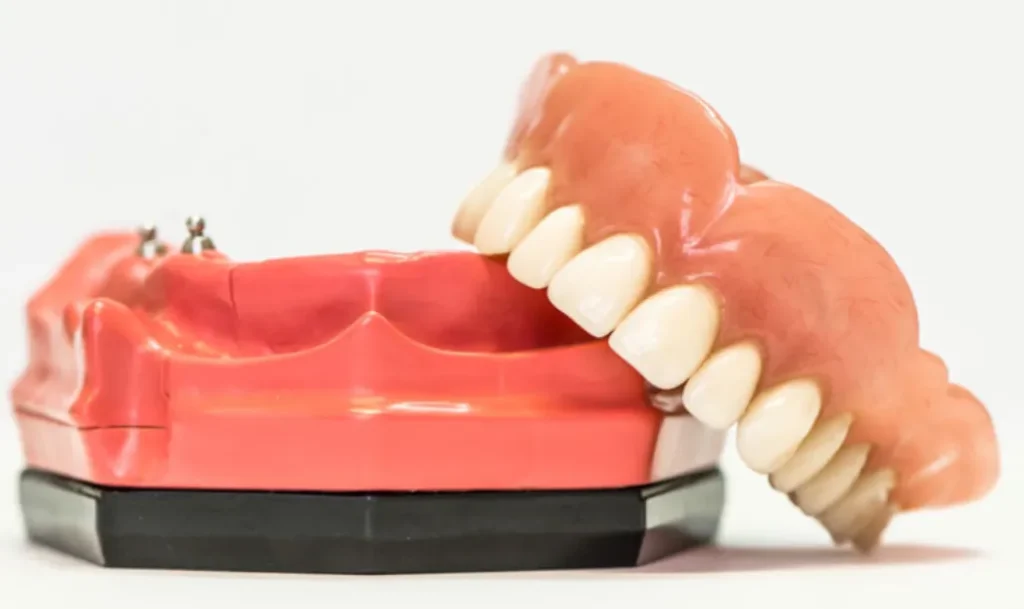Last updated on September 2nd, 2025 at 09:30 am
The Link Between Dentures and Speech
When you get Idaho Falls dentures, one common concern is how they might affect your ability to speak clearly. Your natural teeth, tongue, lips, and palate work together in perfect harmony to produce the sounds you use every day. When teeth are missing or replaced by dentures, this delicate balance is temporarily disrupted. The good news? With time, practice, and proper care, most people regain clear, confident speech and barely notice the difference.
Why Dentures Can Change Your Speech Initially
Dentures introduce new surfaces inside your mouth and can feel bulky or unfamiliar at first. This added bulk affects how your tongue moves to form certain sounds, especially tricky consonants like “s,” “f,” “th,” and “ch.” Dentures also influence the flow of air and resonance in your oral cavity, which are crucial to how clearly you speak.
New denture wearers often notice:
- Lisping or slurring sounds
- Whistling noises when talking
- Difficulty pronouncing certain words or sounds
These issues usually improve over time as your mouth adapts.
Factors That Influence How Dentures Affect Speech
Several factors determine how dentures impact your speech:
- Denture fit: Poorly fitting dentures move around during talking and cause speech difficulties. A snug, secure fit is essential.
- Type of dentures: Full dentures affect speech differently than partial dentures or implant-supported dentures, which offer more stability.
- Previous oral health: If your mouth had dental problems before, adaptation may take longer.
- Individual anatomy: Everyone’s mouth shape and muscle strength differ, influencing how quickly they adjust.
Tips to Improve Speech With Dentures
Adjusting to speaking with dentures takes patience and practice. Here’s how to help your mouth catch up:
- Practice out loud daily: Reading books, newspapers, or even tongue twisters exercises the muscles and trains your tongue to move differently.
- Slow your speech: Speaking more slowly helps you articulate words better and reduces lisping.
- Record yourself: Listening to recordings of your speech helps identify problem sounds and track improvement.
- Use a mirror: Watching your mouth while you speak can give visual cues to correct tongue placement.
- Work with a speech therapist: If speech problems persist, professionals can provide personalized exercises to improve clarity.
- Maintain denture fit: Regular dental visits for adjustments ensure your dentures don’t move during talking.
- Use denture adhesive if needed: Adhesives can help keep dentures stable, preventing slips that cause speech issues.
How to Care for Your Dentures to Support Speech
Taking good care of your dentures also plays a role in speaking clearly:
- Clean your dentures daily to remove plaque and debris that can interfere with speech and cause discomfort.
- Soak dentures overnight in appropriate solutions to keep them comfortable and hygienic.
- Avoid trying to adjust dentures yourself, as improper tweaks can worsen fit and affect speech.
When to Seek Help
If speech problems persist beyond several weeks or become worse, it’s time to talk to your dentist. Lingering issues may indicate that dentures need adjustment or a more thorough oral health evaluation. Sometimes, underlying conditions like dry mouth or oral infections can impact speech and comfort.
The Psychological Impact of Speaking With Dentures
Speech affects more than just communication; it influences your confidence and social life. Struggling with speaking can lead to social anxiety or withdrawal. Remember, adapting to dentures is common and temporary. Being patient and seeking support from loved ones or professionals can ease the emotional challenges during this transition.
Additional Tips for Social Confidence
- Practice speaking in comfortable, low-pressure environments before big social events.
- Use positive affirmations to remind yourself that you are adapting and improving.
- Engage in group activities or clubs that encourage conversation in a supportive setting.
The Long-Term Outlook
With consistent effort and care, most denture wearers regain full speech clarity. Some even find their speech improves compared to before tooth loss, as dentures restore proper lip support and mouth shape. The key is to stay committed to practice and dental care.
Conclusion
Getting Idaho Falls dentures may initially affect your speech, but this challenge is temporary. Through daily practice, proper denture care, and professional support when needed, you can speak clearly and confidently once again. Your voice is an important part of who you are, let your smile and your words both shine brightly.

